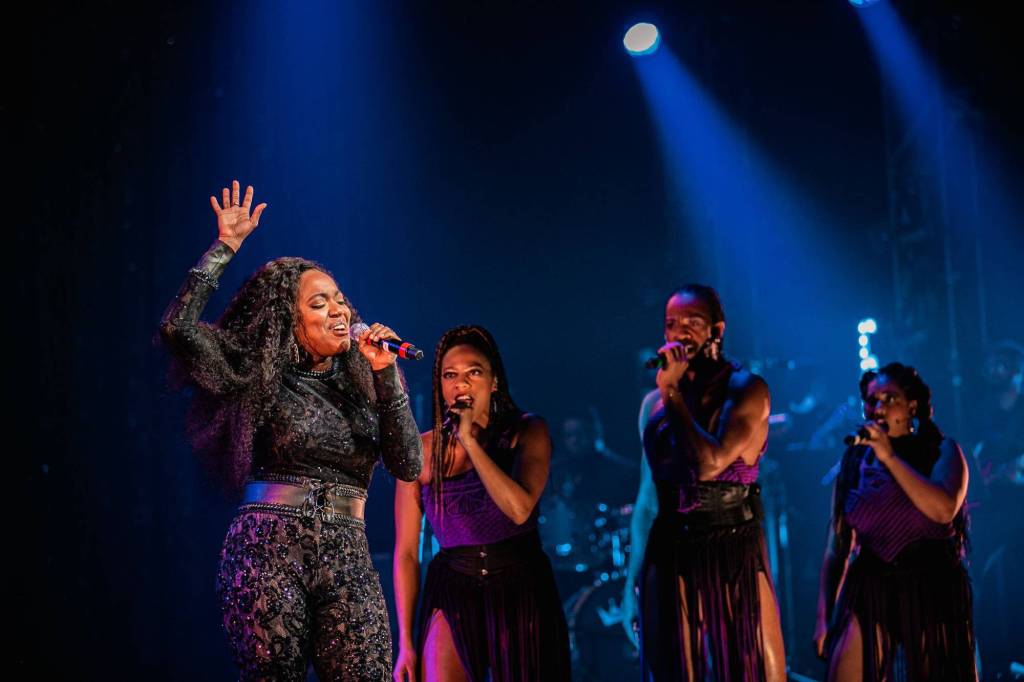Macbeth In Stride
Created and performed by Whitney White, “Macbeth in Stride” examined what it means to be an ambitious Black woman through the lens of one of Shakespeare’s most iconic characters, Lady Macbeth. Directed by Taibi Magar and Tyler Dobrowsky, the groundbreaking world premiere relied upon a wide range of musical genres as a vehicle for exploration. Since 2011, “Macbeth in Stride” has been produced by theaters nationwide including Philadelphia Theater Company and Shakespeare Theatre Company and will perform at Yale Repertory Theater in December.
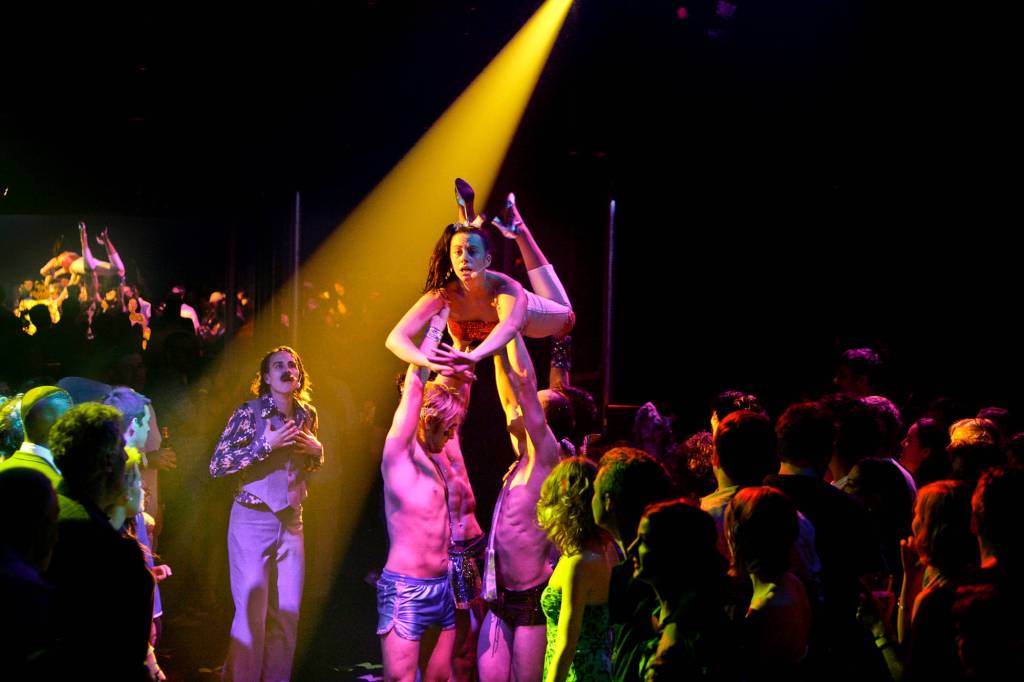
The Tempest
“The Tempest” is thought to be one of Shakespeare’s last plays and his farewell to the stage. A.R.T’s 2014 production featured a Dust Bowl-circus-inspired setting and stage magic developed by Teller (of the legendary duo Penn & Teller). From the simulated storm to spectacular illusions, A.R.T.’s production brought the magic and wizardry of the play to a whole new level. Co-produced with the Smith Center for the Performing Arts in Nevada, “The Tempest” opened in Las Vegas on April 1, 2014, then began at A.R.T. on May 10, 2014.
Shakespeare Exploded: The Donkey Show, Sleep No More, Best of Both Worlds
Terrie and Bradley Bloom Artistic Director Diane Paulus kicked off her inaugural season at A.R.T. with the “Shakespeare Exploded” festival, which featured some of the A.R.T.’s most notable Shakespeare adaptations: “The Donkey Show,” an immersive disco experience inspired by “A Midsummer Night’s Dream” that closed at A.R.T. in 2019 after over 850 performances to over 150,000 audience members, and “Sleep No More,” a unique immersive theatrical adventure that combined the worlds of Shakespeare’s “Macbeth” with Hitchcock’s thrillers. “Best of Both Worlds” was an R&B infused adaptation of “The Winter’s Tale,” featuring a roster of Boston’s most celebrated gospel choirs.
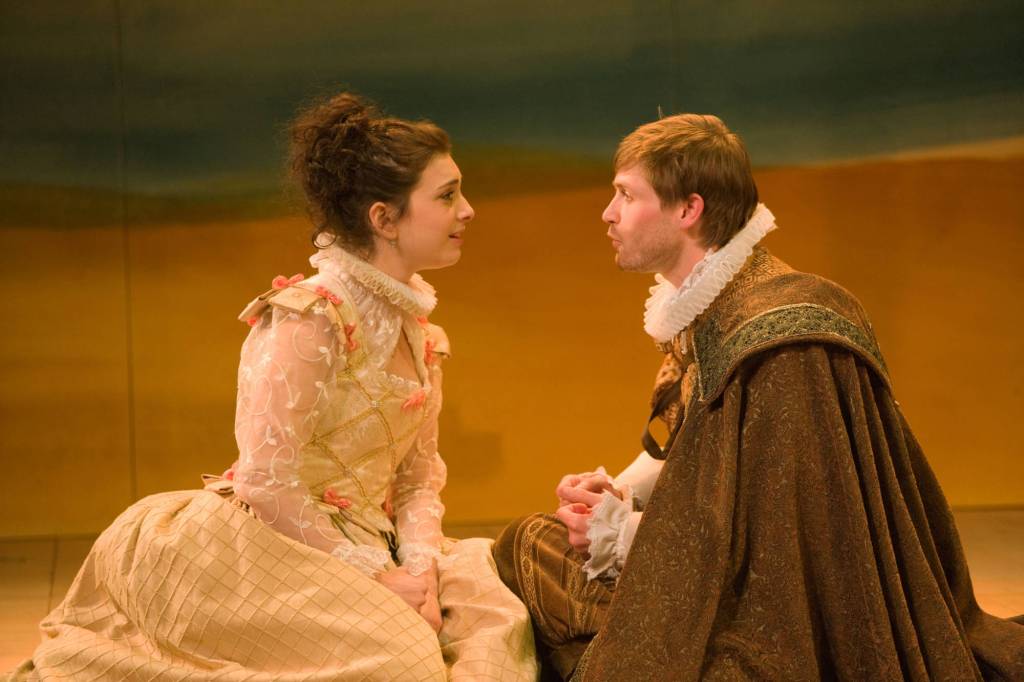
Cardenio
An adaptation of a lost play thought to have been co-written by Shakespeare, “Cardenio” was a collaboration between renowned scholar Stephen Greenblatt and playwright Charles L. Mee. Performed only twice in Shakespeare’s lifetime and never published, the 17th-century romantic comedy was almost certainly based on a section of Miguel de Cervantes’ novel “Don Quixote.” Greenblatt commissioned theater companies from around the world to create their own culturally specific adaptations by combining the Cervantes novel with the surviving fragments of the 17th-century play.
2005/’06
2002/’03
2001/’02
Othello
2000/’01
Richard II
1999/’00
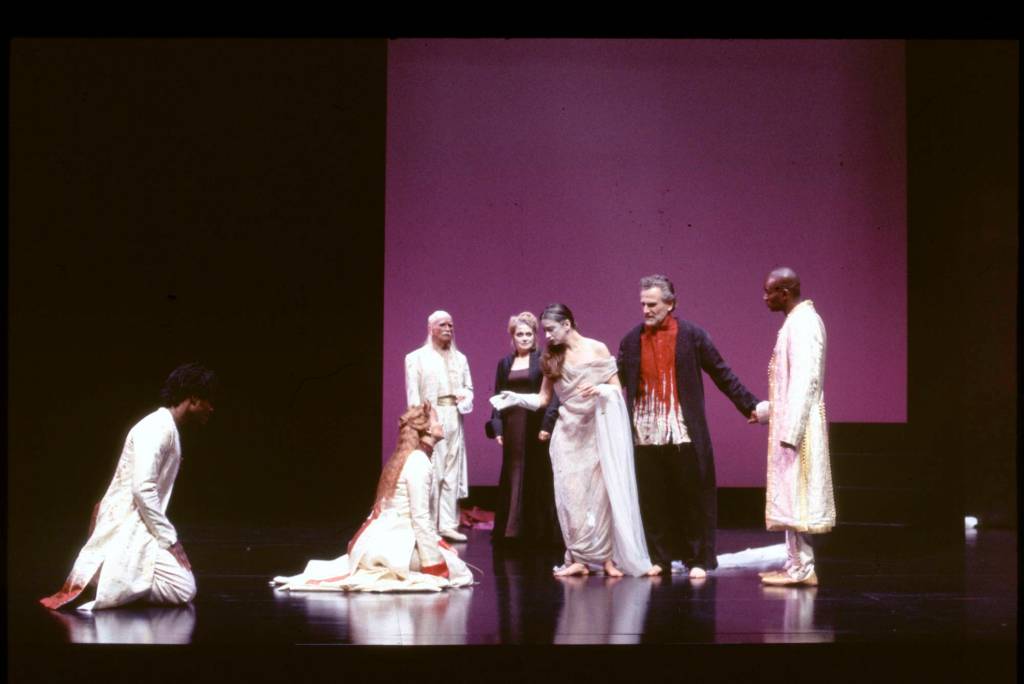
The Winter’s Tale
Originally considered among Shakespeare’s comedies, scholars later classified “The Winter’s Tale” as a late romance, one that is preoccupied with themes of redemption and forgiveness. A.R.T.’s production in 2000, which was staged by Macedonian director Slobodan Unkovski, distinguished the two worlds of the play, Sicily and Bohemia, through bold, colorful costume and set design.
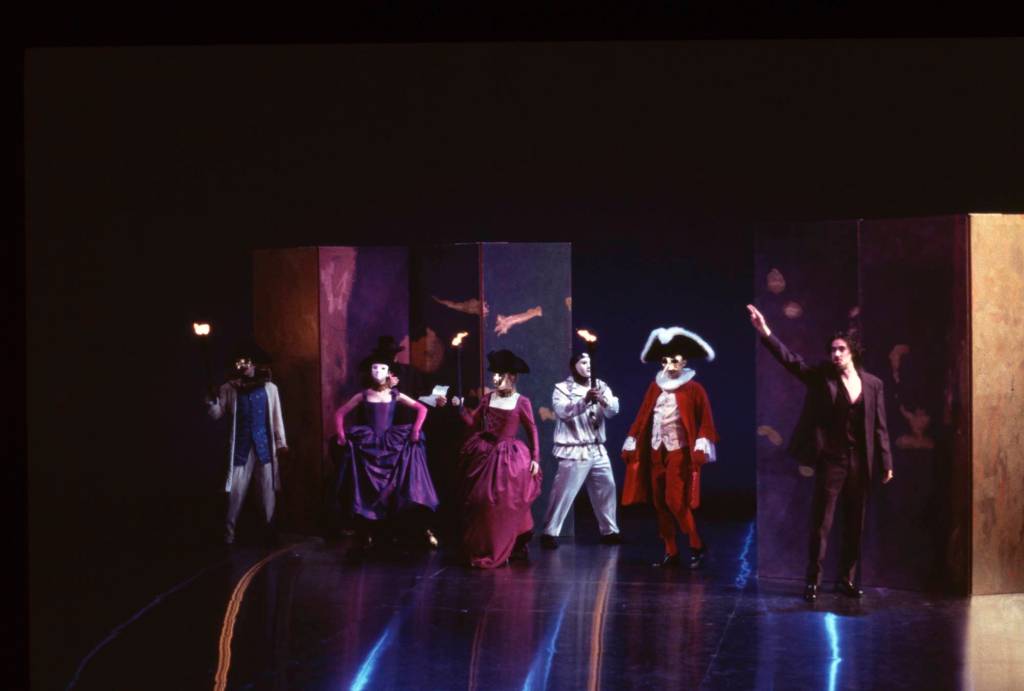
The Merchant of Venice
Director Andrei Serban staged some of the A.R.T.’s most notable productions from its first decade. After an eight-year absence, Serban returned to A.R.T. to mount “The Taming of the Shrew” and “The Merchant of Venice” in back-to-back seasons. Serban’s production began with a drunken tinker who dreamt that the A.R.T. company was touring in a full-sized van that opened to become a playing area; his staging had Kate and Petruchio first meet in a boxing ring. Audiences raved about the production’s exuberant energy, invention, and eclectic costume design. For his production of “The Merchant of Venice,” one of Shakespeare’s most provocative and controversial plays, Serban’s frequent collaborator Elizabeth Swados composed a new score for the production.
1997/’98
The Taming of the Shrew
1994/’95
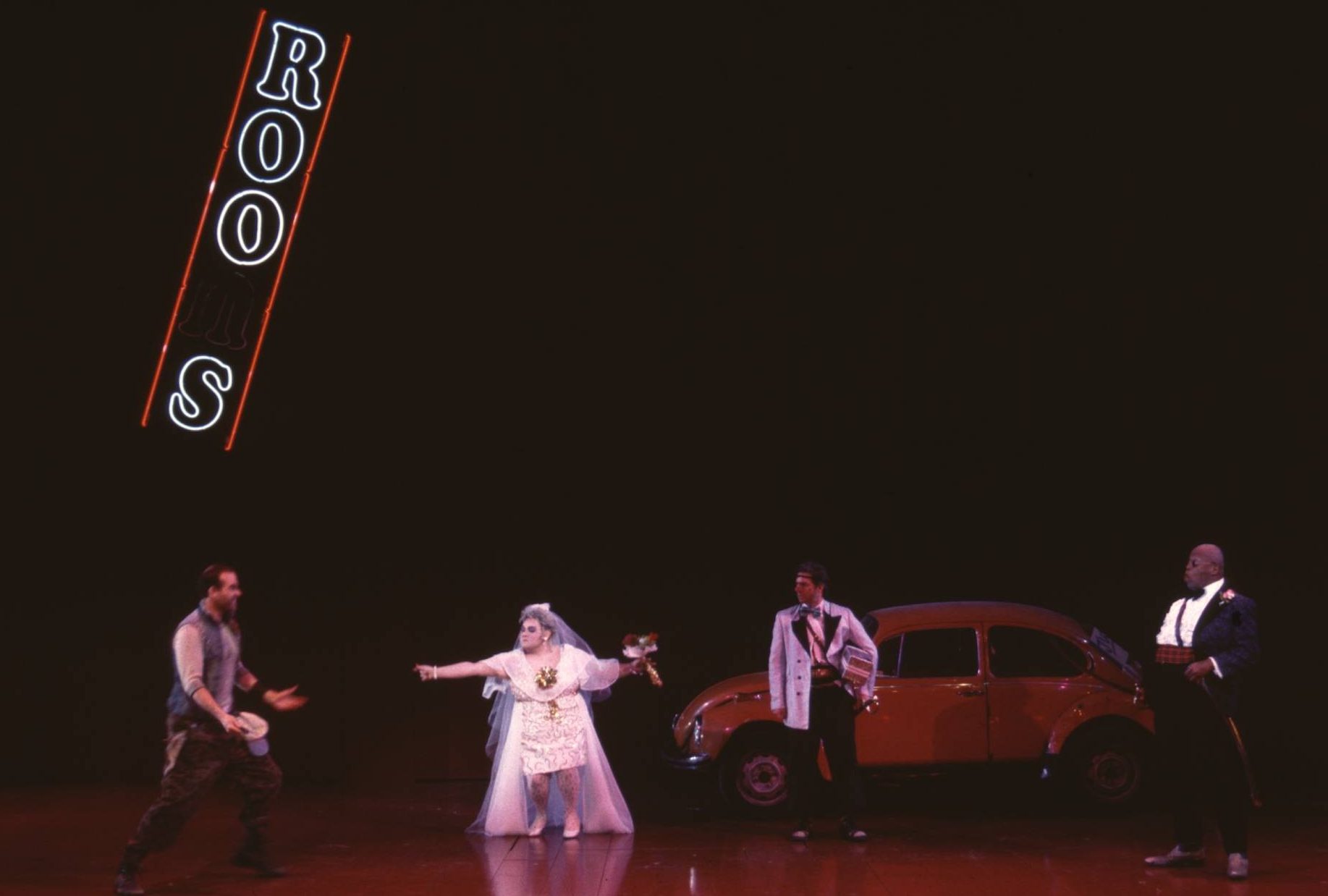
Henry V
Director Ron Daniels’ productions of “Henry IV Part 1,” “Henry IV Part 2,” and “Henry V” translated the action into a series of startling images featuring bright colors and bold costumes. The series, which regularly filled the theater with standing-room-only audiences, featured celebrated actor Bill Camp. Founding Director Robert Brustein adapted “Henry IV Part 1” and “Henry IV Part 2.”
1993/’94
Henry IV
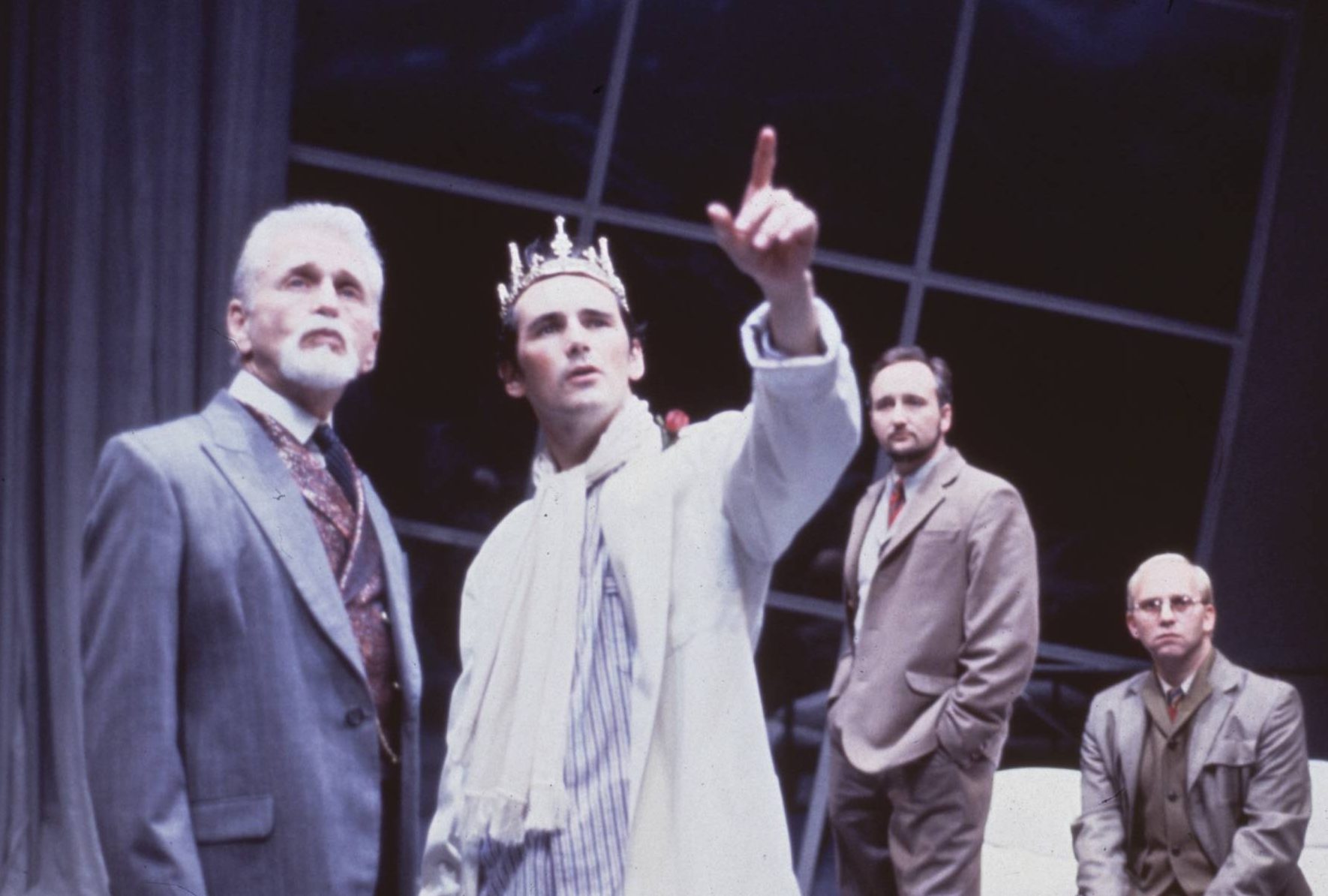
Hamlet
In director Ron Daniels’ new interpretation of “Hamlet” to Cambridge, Mark Rylance, who later became the Founding Artistic Director of the Globe in London, starred as a distinctive, modern Hamlet who was clinically depressed. The production ran in repertory with a production of Anton Chekhov’s “The Seagull,” in which Rylance also portrayed Konstantin.
1990/’91
King Lear
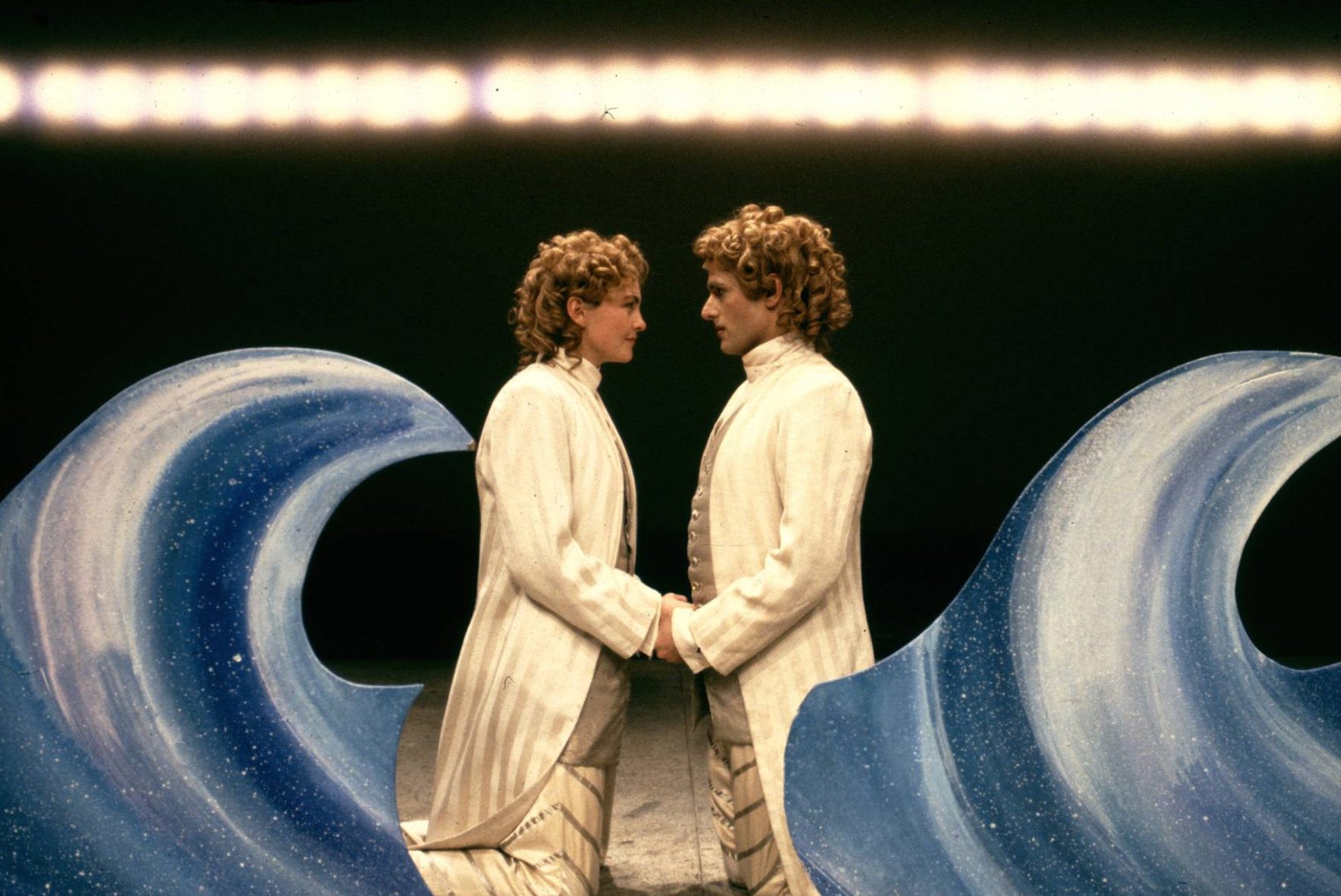
Twelfth Night
Director Andrei Serban married the humor of Shakespeare’s popular comedy with darker elements of the play, leaning into its eroticism and featuring visual imagery that rejected conventions of time and place. Serban reimagined many aspects of the play, ignoring gendered boundaries and reconcontextualizing the traditionally happy ending. Celebrated performer Cherry Jones starred as Viola/Cesario.
1984/’85
Love’s Labour’s Lost
1983/’82
Measure for Measure
1982/’83
Boys from Syracuse
1980/’81
As You Like It
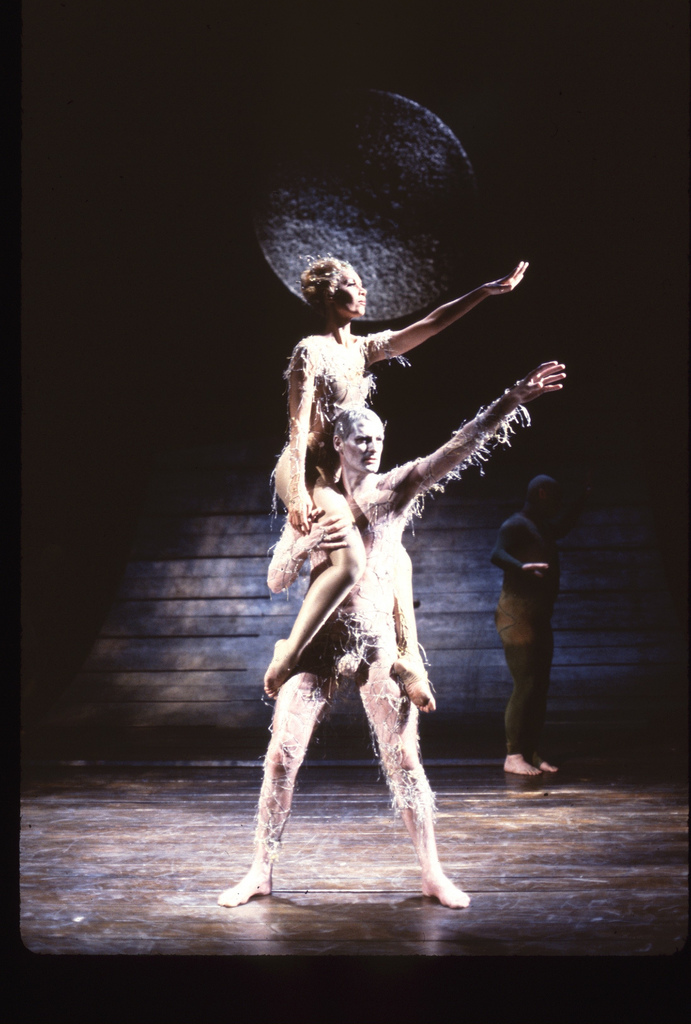
A Midsummer Night’s Dream
A.R.T.’s inaugural production was “A Midsummer Night’s Dream,” Shakespeare’s most frequently staged play. The show incorporated music from “The Fairy Queen,” a semi-opera by Henry Purcell, and featured a production design that created a world of mystery, rather than romance. A.R.T. Founding Director, Robert Brustein, starred as Theseus in this production that was broadcast by Boston’s public television station, WGBH, in May and August of 1981. The production set the stage for a long history of producing and reimagining Shakespeare’s plays.
REFERENCE:
Plotkins, Marilyn J. The American Repertory Theatre Reference Book: The Brustein Years. Praeger, 2005.
Source link

